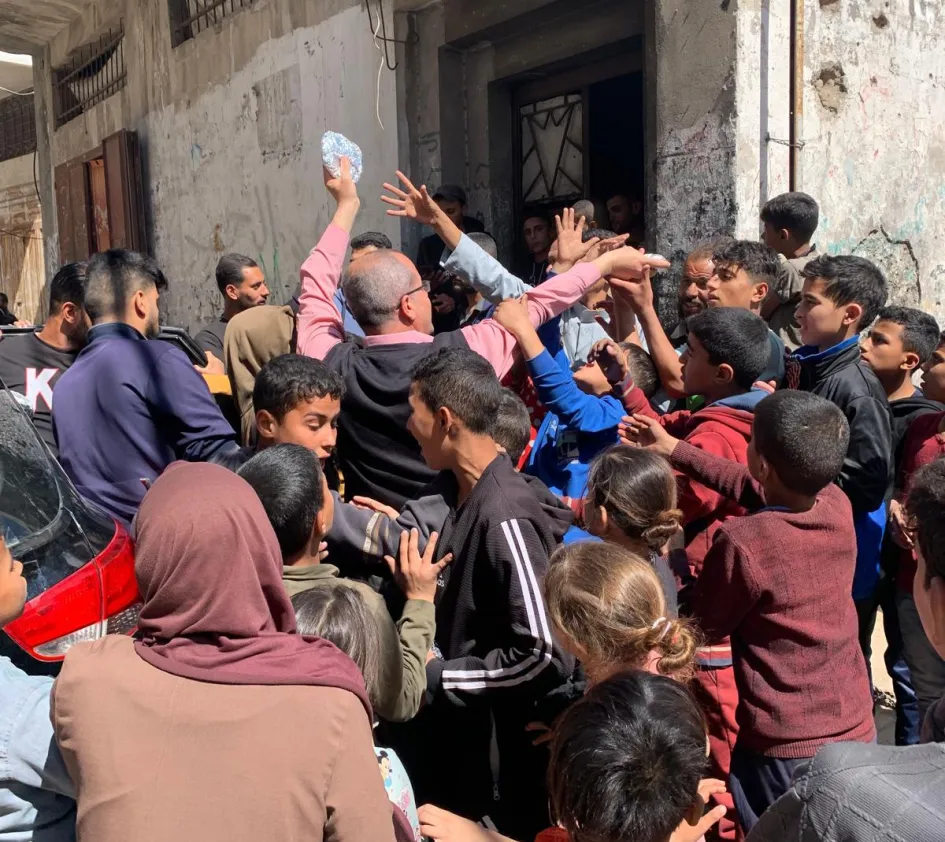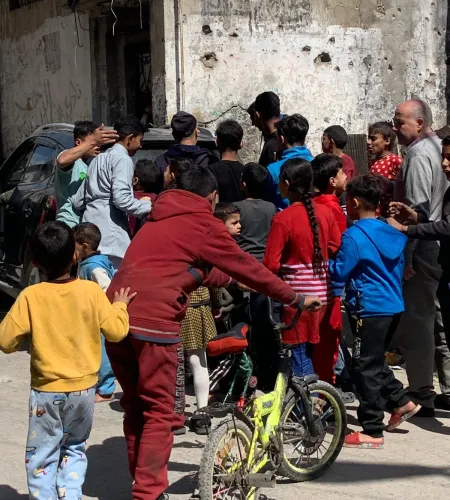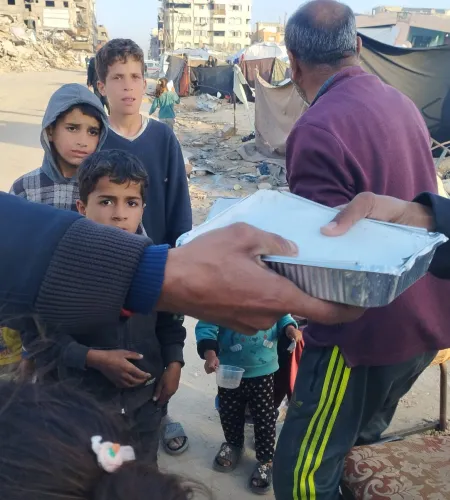Since the escalation of the conflict in the Middle East, ZOA has been providing emergency aid to people in the Gaza Strip. “We don't take sides, but help where the need is greatest,” says Kees-Jan. “There are many conflicts in the world right now, leaving people in extreme need. Gaza is one of them. And that's why we're there, helping where we can.”

Helping with the courage of despair in Gaza
“We do what we can and keep trying,” says Kees-Jan Hooglander, coordinator of ZOA’s disaster relief team. “In Gaza, we help with the courage of despair. The only other option we have, is to do nothing. And that goes against our humanitarian mandate.”
Almost impossible
Providing emergency aid is difficult in many areas, but in Gaza it's currently almost impossible, he sighs. "People barely have access to aid in Gaza; the situation is getting worse every day. It's almost impossible for aid organisations to work there."
Over the past year and a half, ZOA has managed to provide Gazans with food, albeit sparingly. This is done through ZOA's Christian partner organisation in the region, together with local churches and individuals. "We work through our network or through the church to reach vulnerable families," says Kees-Jan. "This way, we can ensure that the funds or products don't fall into the wrong hands."
Initially, the emergency aid consisted of small-scale distributions of food that was still available in Gaza. During the ceasefire at the beginning of this year, rice and fresh vegetables were imported, which were used to cook hot meals in soup kitchens. This way, ZOA was able to provide meals to more than 100,000 people.

Sky-high food prices
It is no longer possible to help people on this scale. ZOA has therefore switched to a system that gives people financial credit on their phones so they can decide for themselves what they need. This can be food, but also drinking water, fuel, or items like cookware. "In recent months, we've been able to provide credit to a few dozen people by phone as a pilot project, and we now want to expand this," says Kees-Jan.
Currently, people in Gaza can no longer pay electronically. They have to withdraw their money in cash, and converting the credit to physical banknotes entails significant costs. Moreover, the prices of food, water, and medicine are now sky-high. "The only way we can reach people in Gaza right now is through electronic funds. But that's far from enough," says Kees-Jan. Hunger is spreading more and more rapidly.
'We cannot do nothing'
Is it still worthwhile to provide this aid? "Yes," he says with conviction. "With our partners, we're constantly looking for what we can do. We're here to demonstrate God's love through emergency aid. We can't do nothing. Every person in need has the right to be helped. We will continue to work towards that."

